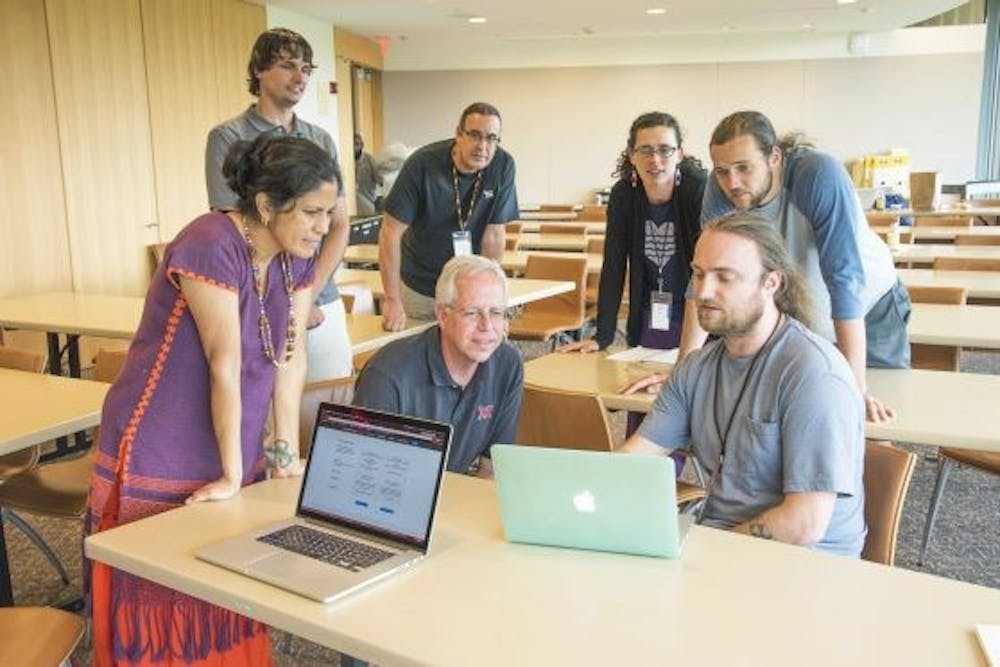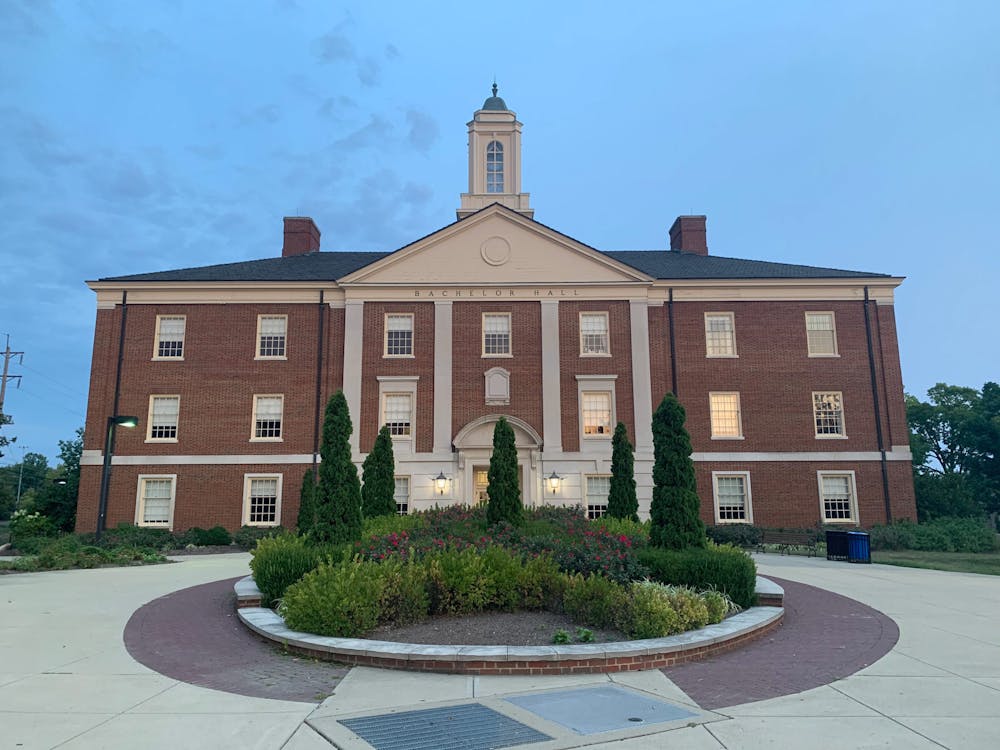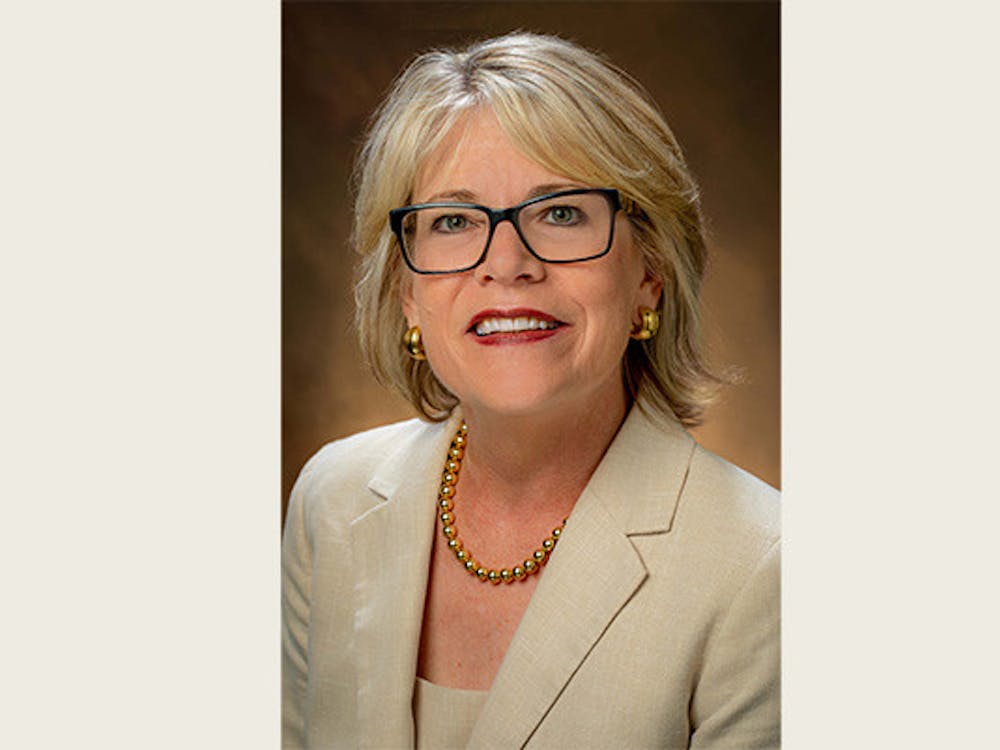The National Endowment for the Humanities, a federal agency that funds projects and programs in the humanities across the country, awarded Miami University a grant to fund a project on indigenous language revitalization on Wednesday, Aug. 8, led by Director of the Myaamia Center Daryl Baldwin.
The grant totals $311,641 and is one of 218 awards distributed to projects nationwide as part of NEH's third and final round of funding for the fiscal year, which altogether totals $43.1 million. The grant had to be applied for, and competition was high.
"In addition to providing for construction and capacity-building projects at museums, libraries, and colleges, NEH grants support a wide range of public programs that bring humanities ideas, experiences, and resources to communities large and small," read the Aug. 8 NEH news release.
The Myaamia Center does collaborative work between the university and the Miami Tribe of Oklahoma, with whom the school has had a relationship since the 1970s. Baldwin is a member of the Miami Tribe and, since 2015, head of the National Breath of Life program focusing on revitalizing native languages, including and especially the Miami Tribe's own.
The first National Breath of Life program began in 2011 as a two-week biennial workshop in which more than 100 tribal representatives from dozens of language communities investigated documents in the archives of the Smithsonian containing Native American languages. Many of these languages had gone dormant, but through Breath of Life they began to be recovered and-- in the case of myaamiataweenki, the Miami Tribe's own language-- learned and spoken again.
"In our modern English rhetoric when languages cease to be spoken we call them extinct or dead," Baldwin said. "In our field we tend to call them sleeping languages. If there's adequate documentation, as there is for the Myaamia language, then who says it can't be revitalized?"
The three-year grant from NEH will go towards funding Breath of Life 2.0: Indigenous Language Revitalization through Enhancement of the Miami-Illinois Digital Archive, which will build upon the accomplishments of Breath of Life's first iteration. The Miami-Illinois Digital Archive (MIDA) is an online database that compiles and organizes data and translations of the Miami-Illinois language along with images of the primary source documents for further research and analysis.
Faculty and graduate students in Miami's Computer Science and Software Engineering department are working to create the Indigenous Languages Digital Archive (ILDA), which is modeled after MIDA but will include languages from beyond the Miami-Illinois region. At the moment, ILDA only has one language in its database: Nuu'da', which comes from the Dine language family--a group that contains several languages, including Navajo. However, the database is designed to handle all sorts of different native languages, which vary widely in their origins and structures.
"If we build a piece of software that works well for us and there's an interest and a need in another community, then we're open to sharing to that," Baldwin said. "And if we can do it through an organized way like Breath of Life, then that increases the impact of it."
The Myaamia Center will put part of the grant money toward hiring a part-time programmer to manage the archive and its software. The rest of it will go towards funding two new workshops. One of these workshops will be at Miami and the other at the University of Oregon, which is co-sponsored by the Northwest Indigenous Languages Institute (NILI).
Gabriela Perez Baez, co-project director and co-recipient of the grant along with Baldwin, is assistant professor of linguistics at the University of Oregon and will work on the program there.
Alumni of Breath of Life 1.0 and others will apply to attend these workshops, where they will upload materials to the archives and learn to use ILDA. Even with the launch of its newer iteration, Breath of Life 1.0 will continue, for communities that still need access to archived documents.
Enjoy what you're reading?
Signup for our newsletter
This work has significance and potential implications not just in native communities in America, but in places all over the world where linguistic diversity is declining. But for now, this research most directly impacts the Miami Tribe, and its continually developing relationship with the university.
"There isn't anywhere that our young people can go to learn about their heritage. That's going to come from the tribe," Baldwin said. "And so turning to an institution like Miami University and partnering around that...allows the tribe to advance itself, but it also allows an opportunity for sharing on campus so that students learn about the indigenous people that are still here."
This article originally contained incorrect statements regarding the recipient of the NEH grant, the relationship between the Miami Tribe and Miami University as well as several inconsistencies about the Myaamia Center, the National Breath of Life program and Gabriela Perez Baez. It was updated for accuracy and clarification at 11:22 p.m. on August 29, 2018.




